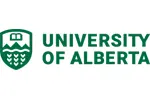

Award: Doctor of Philosophy
The Department of Agricultural, Food, and Nutritional Science offers thesis programs leading to Master of Science and Doctor of Philosophy degrees, as well as course-based programs leading to Master of Agriculture and Master of Science degrees. Departmental graduate program guidelines exist and are summarized in the Agricultural, Food, and Nutritional Science Program Handbook.
The Department has active research programs in the following areas of specialization:
The Department research facilities at the Edmonton Research Station include: Crops and Land Resources, Alberta Poultry Research Centre, Swine Research and Technology Centre, Dairy Research and Technology Centre, Composting and Feedmill Facilities, the Laird McElroy Metabolism and Environmental Research Centre and Agri-Food Discovery Place. Additional Research Stations an hour drive from campus include the Ministik Wildlife Field Station and the Kinsella Research Ranch used for extensive beef cattle research.
On the North campus the Department is home to laboratory space and equipment including greenhouses, plant growth facilities, a Human Nutrition Research Unit, an Agri-Food Materials Science Lab, an Agriculture Genomics and Proteomics lab, a Food Microbiology lab, and extensive sensory and consumer science facilities.
Entrance Requirements
For an MAg or a course-based MSc degree, the Department's minimum admission requirements are an undergraduate degree with an admission GPA of at least 3.0 on the 4-point scale from the University of Alberta, or an equivalent qualification and standing from a recognized institution.
For a thesis-based MSc degree, the Department's minimum admission requirements are an undergraduate degree with an admission GPA of at least 3.3 on the 4-point scale from the University of Alberta, or an equivalent qualification and standing from a recognized institution.
For the PhD program, the Department's minimum admission requirements are a Master's degree with an admission GPA of at least 3.3 on the 4-point scale from the University of Alberta, or an equivalent qualification and standing from a recognized institution. Exceptional students may be admitted directly from a bachelor's degree.
The admission GPA will be calculated on the last 60 units of graded coursework completed, or on the equivalent of the last two years of full-time graded coursework.
Where applicable, applicants must meet the minimum English Language Requirement.
Applicants for the course-based Specializations in Food Safety and Quality or in Meat Quality apply to the Specialization Committee and are not required to have a supervisor. Applicants for all other course-based and thesis-based programs are required to have a faculty member agree to supervise their program prior to applying to their program. See Admission Process on the Department website for further information.
All applicants are also required to submit
Application deadlines for all programs in Agricultural, Food, & Nutritional Science are as follows:
Learn more about Agriculture, Food, and Nutritional Science, PhD - at University of Alberta
Visit course webpageContact University of Alberta to find course entry requirements.
The University of Alberta offers a wide ranges of scholarships to international students. You will be evaluated for these scholarships when you apply for admission. Your eligibility will be based on your high school admission average at the time of your admission offer. We'll assess you for a match to the following three scholarships. If you are eligible for an admission-based scholarship we will contact you directly!
You can also apply for scholarships based on your application, including the President’s International Distinction Scholarship, awarded annually to 25 international students, worth up to CAN $120,000.
To find out more about scholarships click here.
There are 596 other courses listed from University of Alberta. A selection of these are displayed below:
University of Alberta main campus location is shown on the map below:
Find out more about studying in Canada